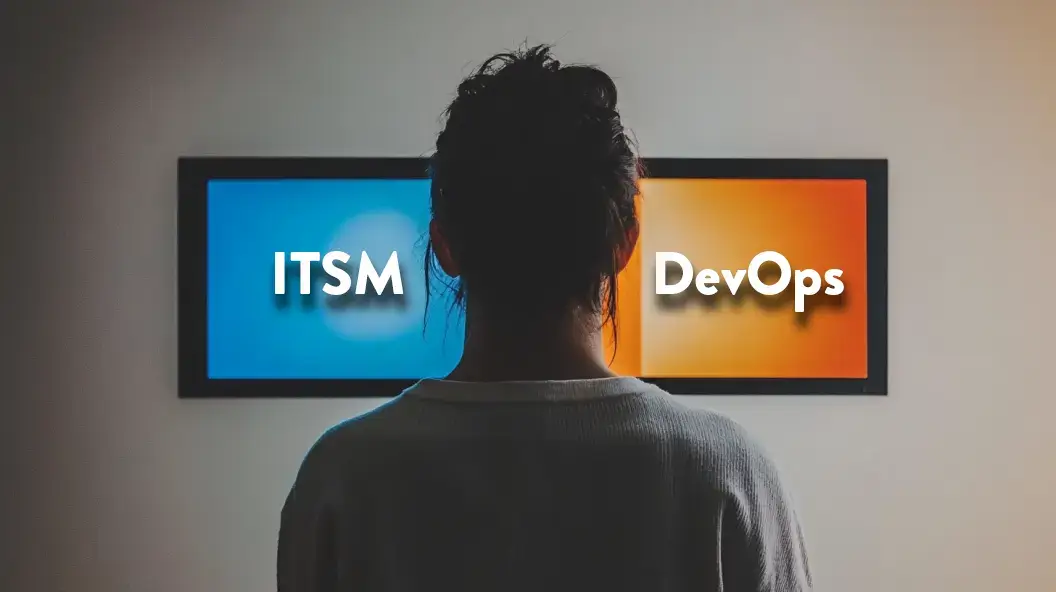
Introduction
Understanding the dynamics of ITSM vs DevOps is essential for organizations aiming to enhance their operational efficiency and service delivery.
The evolution of modern IT operations has reshaped the landscape, demonstrating that IT Service Management (ITSM) and DevOps are not mutually exclusive but rather deeply interconnected methodologies. ITSM ensures stability, compliance, and structured governance, while DevOps drives continuous innovation, automation, and agility. This synergy between ITSM and DevOps is crucial in optimizing IT operations.
This guide provides an expert-level analysis of how ITSM and DevOps complement each other, detailing key differences, integration strategies, and top tools that facilitate their seamless collaboration, particularly in the context of ITSM vs DevOps.
What is ITSM?
ITSM is a comprehensive framework for managing IT services to ensure operational excellence, compliance, and business continuity. The following core disciplines define ITSM’s effectiveness:
- Incident Management – Rapid identification and resolution of service disruptions
- Change Management – Risk mitigation and controlled implementation of changes
- Problem Management – Proactive analysis to prevent recurring issues
- IT Asset Management (ITAM) – Lifecycle management of IT assets for cost efficiency
- Configuration Management (CMDB) – Comprehensive documentation of IT infrastructure components
Core ITSM Frameworks:
- ITIL (IT Infrastructure Library) – The global gold standard for IT service best practices
- COBIT (Control Objectives for Information and Related Technologies) – A governance framework ensuring risk and compliance management
- MOF (Microsoft Operations Framework) – IT service governance framework tailored for Microsoft environments
What is DevOps?
DevOps is a transformational methodology that merges software development and IT operations to enhance collaboration, automation, and rapid deployment. Key DevOps enablers include:
- Continuous Integration/Continuous Deployment (CI/CD) – Seamlessly integrating and delivering software updates
- Infrastructure as Code (IaC) – Automating infrastructure provisioning for agility and efficiency
- Microservices & Containers – Architecting scalable and resilient applications
- Automated Monitoring & Logging – Real-time data-driven insights for proactive issue resolution
- Collaborative Culture – Breaking silos between development and operations teams for a streamlined workflow
Understanding ITSM fundamentals is key to appreciating its intersection with DevOps. If you’re new to ITSM, start with our What is ITSM guide.
Key Differences Between ITSM & DevOps
Understanding the distinctions between ITSM and DevOps is crucial for organizations looking to optimize their IT operations. While ITSM emphasizes structured service management and governance, DevOps fosters agility, automation, and rapid iteration. Despite their differences, both methodologies can work together to create a balanced and efficient IT ecosystem. The table below provides a clear comparison of the core aspects that set ITSM and DevOps apart.
| Aspect | ITSM | DevOps |
| Focus | Service stability, governance, compliance | Continuous improvement, speed, agility |
| Approach | Structured, process-driven | Agile, iterative, flexible |
| Methodologies | ITIL, COBIT, MOF | CI/CD, Agile, Lean |
| Automation | Workflow automation in IT services | Infrastructure as Code (IaC), CI/CD pipelines |
| Change Management | Risk-averse, structured approvals | Continuous deployments with automated testing |
How ITSM & DevOps Work Together in Modern IT Environments
1. Unifying ITSM’s Change Management with DevOps’ CI/CD Pipelines
-
ITSM enforces structured approvals to minimize deployment risks, while DevOps ensures rapid software releases.
-
Example: Freshservice integrates with Jenkins and GitLab to automate change approvals within CI/CD pipelines.
2. Incident Management Reinvented with DevOps Automation
-
DevOps’ proactive monitoring tools significantly reduce ITSM ticket volumes by detecting and resolving issues before they escalate.
-
Example: NinjaOne integrates with DevOps observability tools to automate incident resolution in real time.
3. AI-Driven Automation: A Convergence of ITSM & DevOps
-
AI-powered automation enhances ITSM workflows and DevOps deployment processes for maximum efficiency.
-
Example: Monday Service’s AI-driven automation ensures seamless DevOps-integrated IT changes.
4. Leveraging DevOps Analytics for Advanced ITSM Problem Management
-
DevOps’ advanced analytics and logging enable precise root cause analysis for ITSM problem management.
-
Example: ServiceNow synchronizes with DevOps observability platforms to accelerate issue resolution.
5. Security & Compliance: Strengthening IT Governance with DevOps
-
ITSM ensures regulatory compliance, while DevOps automates security patching and vulnerability mitigation.
-
Example: BMC Helix ITSM integrates with security automation tools to align governance with DevOps practices.
While ITSM focuses on structured processes and governance, DevOps prioritizes agility and automation, with 29% of developers approving code deployments to production and 27% leveraging continuous development for automated deployments. As a result, organizations that have adopted DevOps report a 33% increase in time available for infrastructure improvements, demonstrating the efficiency gains from integrating these methodologies.
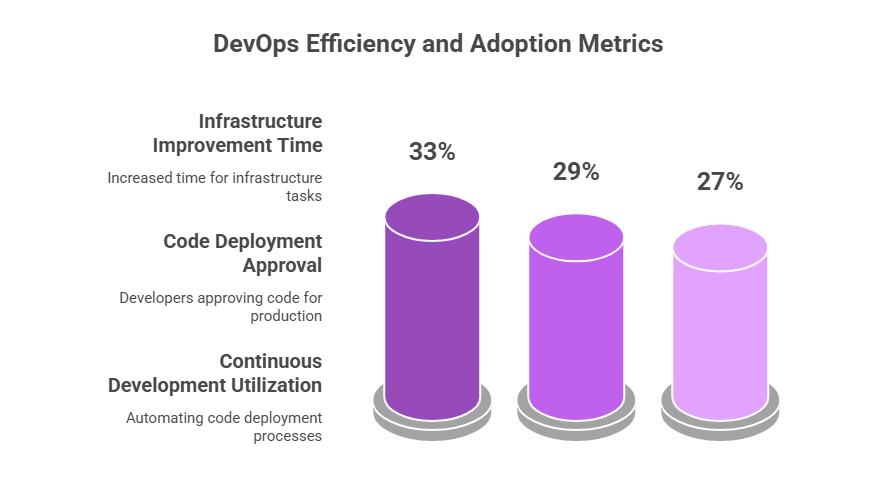
Top ITSM Tools for DevOps Integration
Selecting the right ITSM tool is crucial for organizations looking to streamline IT operations while integrating DevOps practices. The ideal ITSM solution should offer robust automation, seamless change management, and strong monitoring capabilities. Below, we highlight some of the best ITSM tools that align well with DevOps methodologies. For a broader comparison of leading ITSM solutions, check out our Best ITSM Software guide.
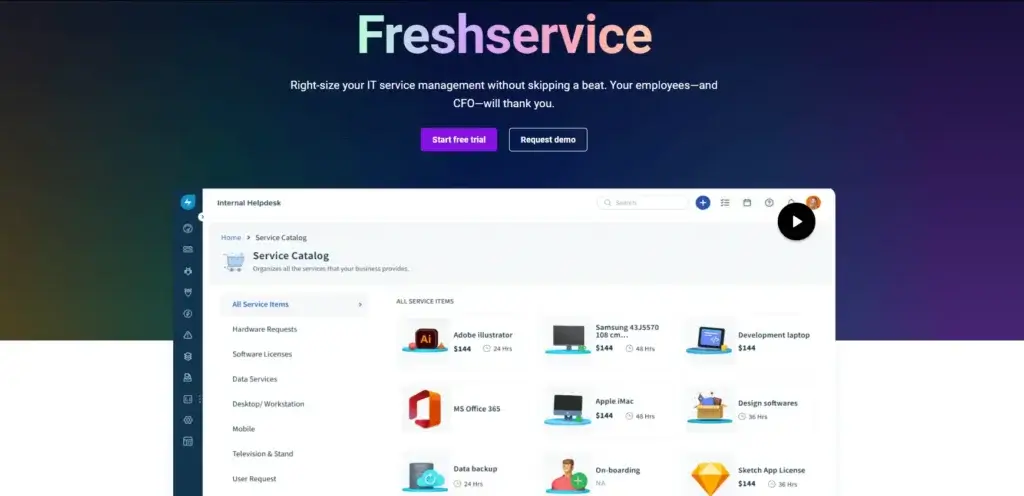
✅ AI-powered ITSM automation for intelligent service delivery
✅ Deep integrations with Jenkins, GitHub, and Bitbucket
✅ Optimized for change and incident management in DevOps-driven environments
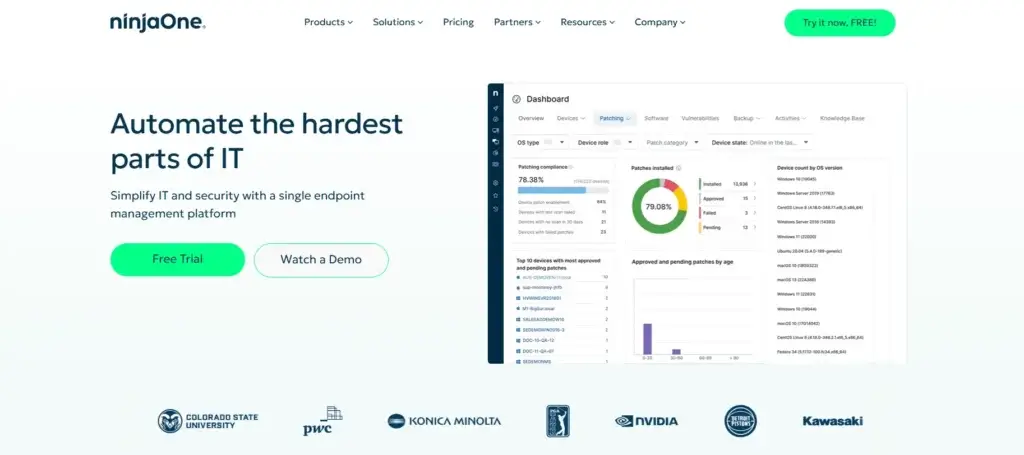
✅ Cloud-native IT management with robust automation and endpoint security
✅ Real-time monitoring and proactive alerting for DevOps workflows
✅ Seamless DevOps integration for incident management and remediation
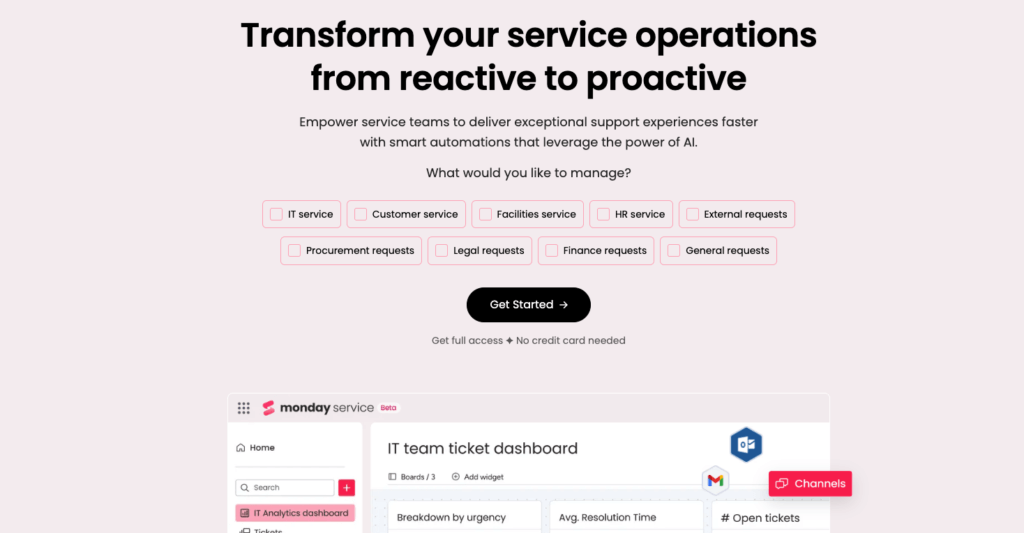
✅ No-code workflow automation for ITSM & DevOps collaboration
✅ AI-enhanced service request automation
✅ Custom dashboards tailored for DevOps use cases
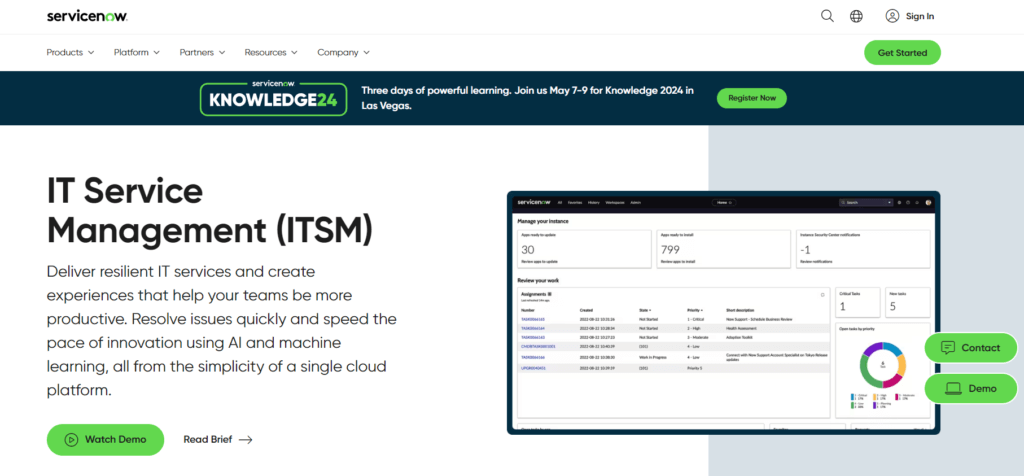
✅ Enterprise-scale ITSM with DevOps observability integration
✅ Self-healing capabilities for automated IT service delivery
✅ Advanced security and compliance controls for hybrid IT operations
Comparison Table
| ITSM Tool | Key Features | DevOps Integration Capabilities |
| NinjaOne | Cloud-native IT management, automation, endpoint security | Real-time monitoring, automated incident resolution |
| Freshservice | AI-powered ITSM automation, smart ticketing | Deep integration with Jenkins, GitHub, Bitbucket |
| Monday Service | No-code workflow automation, AI-enhanced service requests | Custom dashboards, automated workflow alignment |
| ServiceNow | Enterprise-scale ITSM, self-healing capabilities | DevOps observability integration, proactive issue resolution |

Best Practices for Integrating ITSM and DevOps
Successfully merging ITSM and DevOps requires a strategic approach that leverages the strengths of both methodologies. Here are some best practices to guide this integration:
Foster a Collaborative Culture
Encourage open communication and collaboration between development and operations teams. Breaking down silos fosters mutual understanding and aligns goals across departments.
Implement Automated Change Management
Utilize automation to streamline change management processes. Automated workflows can expedite approvals and reduce the risk of human error during deployments.
Adopt Continuous Monitoring and Feedback Loops
Establish continuous monitoring to gain real-time insights into system performance. Implement feedback loops to promptly address issues and incorporate learnings into future iterations.
Align ITSM Processes with Agile Practices
Integrate ITSM processes with agile methodologies to enhance flexibility. This alignment ensures that service management practices support rapid development cycles.
Invest in Integrated Toolchains
Select tools that facilitate seamless integration between ITSM and DevOps workflows. Integrated toolchains enhance visibility and efficiency across the software development lifecycle.
Prioritize Continuous Improvement
Regularly assess and refine processes to identify areas for improvement. Emphasize a culture of continuous learning and adaptation to evolving business needs.
By implementing these best practices, organizations can create a harmonious IT environment that leverages the structured governance of ITSM and the agility of DevOps, leading to improved service delivery and operational excellence.
Conclusion
The integration of ITSM and DevOps is a game-changer for modern IT operations. By leveraging the strengths of both methodologies, businesses can achieve unparalleled efficiency, stability, and agility.
With industry-leading tools like NinjaOne, Freshservice, monday service, and ServiceNow, organizations can streamline IT service management while accelerating software delivery.
To explore more about ITSM tools and their capabilities, visit our in-depth guide on the Best ITSM Software.
FAQ
Is DevOps part of ITSM?
DevOps is not a direct subset of ITSM but serves as a complementary methodology. ITSM provides governance and structured service management, while DevOps focuses on agility and continuous delivery.
What is the difference between DevOps and ITIL?
ITIL is a structured framework within ITSM that provides best practices for IT service management, whereas DevOps is a methodology emphasizing rapid deployment and automation.
How do ITSM and DevOps complement each other?
ITSM ensures governance and stability, while DevOps enhances agility and automation. Their integration fosters a balanced IT environment that maximizes operational efficiency.
Can DevOps replace ITIL?
No, DevOps does not replace ITIL. Instead, organizations can integrate ITIL’s structured processes with DevOps’ agile methodologies for optimal IT service delivery.
What role does Agile play in ITSM?
Agile influences ITSM by promoting flexibility, rapid iterations, and continuous improvements, particularly in change and incident management.
How does DevOps differ from managed services?
Managed services involve outsourcing IT operations, while DevOps focuses on internal efficiency and automation within software development and deployment.
How can organizations integrate ITIL with DevOps?
Organizations can combine ITIL with DevOps by automating ITSM processes, leveraging AI-driven change management, and aligning governance with DevOps workflows.










